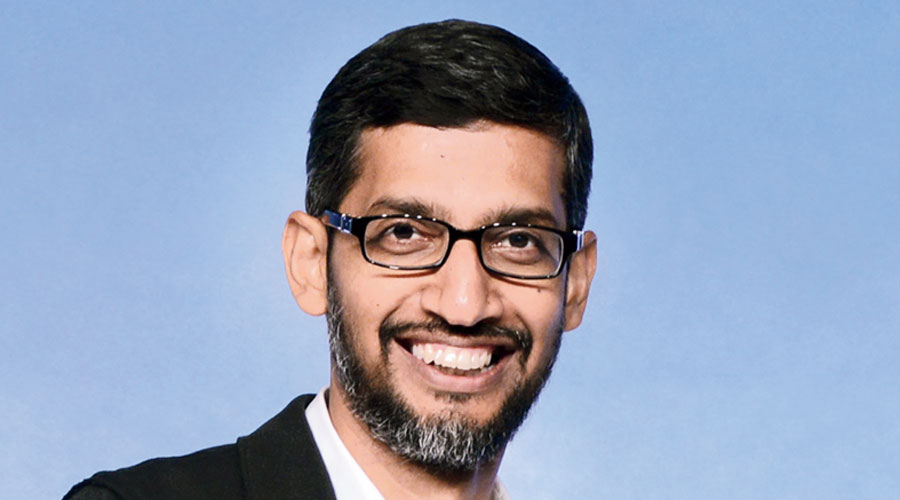Google CEO Sundar Pichai, who was born in Tamil Nadu and grew up in Chennai, said India is deeply rooted in him and a big part of who he is.
In an in-depth interview with the BBC at the Google headquarters at Silicon Valley in California, the tech boss covered a wide range of topics, including the threat to free and open Internet and also narrowed down two developments that he feels will further revolutionise the world over the next quarter of a century: artificial intelligence (AI) and quantum computing.
“I’m an American citizen but India is deeply within me. So it’s a big part of who I am,” Pichai, 49, said, when asked about his roots.
“I view it [artificial intelligence] as the most profound technology that humanity will ever develop and work on. You know, if you think about fire or electricity or the Internet, it’s like that. But I think even more profound,” said Pichai, the CEO of Google and its parent company Alphabet.
When asked about whether the Chinese model of the Internet based on surveillance is in the ascendant, Pichai said the free and open internet “is being attacked”.
While he didn’t refer to China directly, he said: “None of our major products and services are available in China.”
On the controversial issue of tax, he said: “We are one of the world’s largest taxpayers, if you look at on an average over the last decade, we have paid over 20 per cent in taxes.
“We do pay the majority of our share of taxes in the US, where we originate and where our products are developed. I think there are good conversations and we support the global OECD conversations figuring out what is the right way to allocate taxes, this is beyond a single company to solve,” he said.
He was also asked about his own personal tech habits and encouraged everyone to adopt “two-factor authentication” when it comes to passwords to ensure multiple protections and admitted he is constantly changing his phone to test out new technology.
WhatsApp complaints
Facebook’s WhatsApp on Monday faced a barrage of complaints by the European Consumer Organisation and others over a privacy policy update, which has prompted a global outcry.
WhatsApp in January introduced a privacy policy which allows it to share some data with Facebook and other group firms. It said the changes permit users to message with businesses and would not affect personal conversations.










